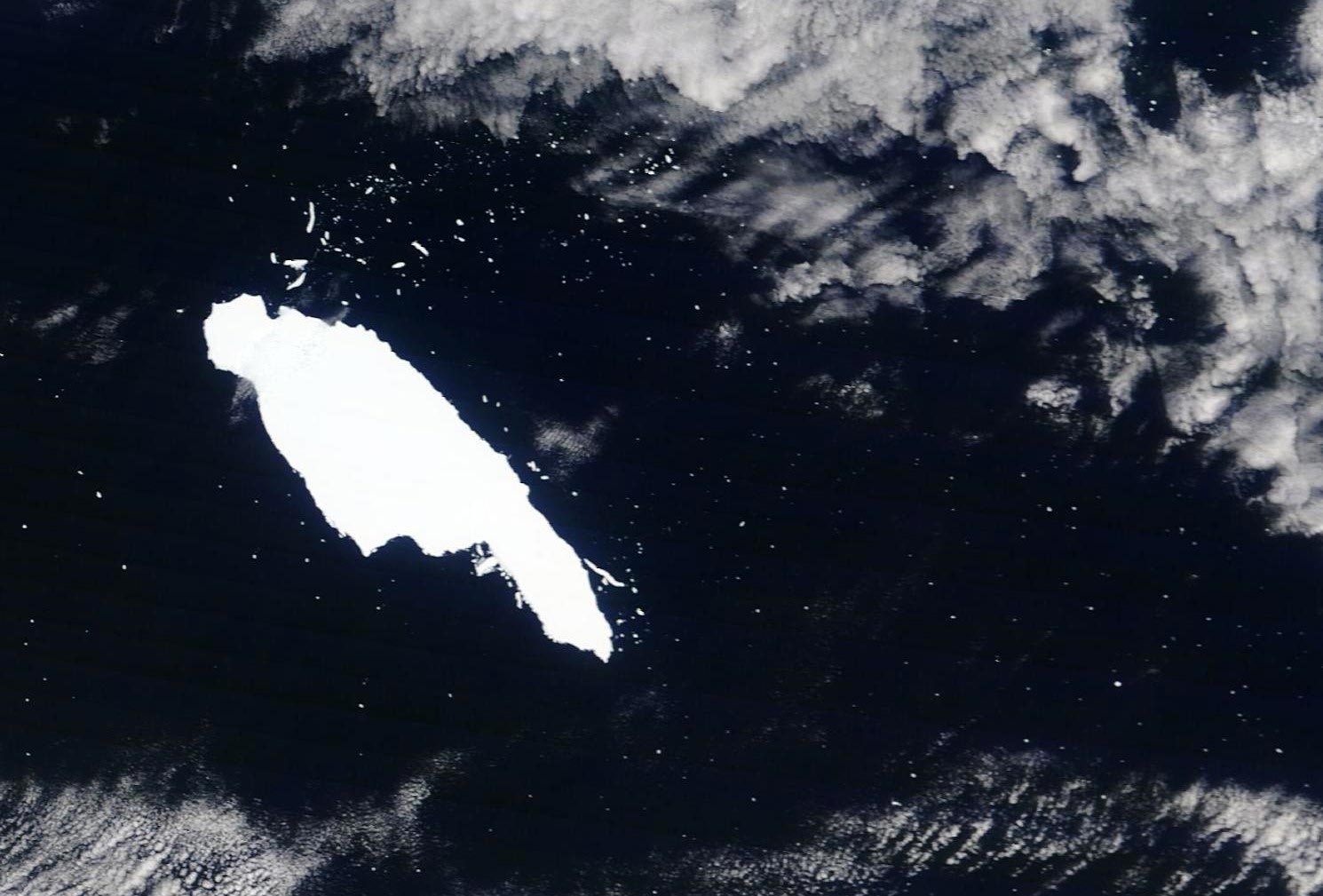
Around Christmas 2020, the berg received widespread attention as it drifted worryingly close to South Georgia, raising concerns it could harm the island’s fragile ecosystem.
Researchers from the Centre for Polar Observation and Modelling (CPOM) and British Antarctic Survey (BAS) used satellite measurements to chart the A68A iceberg’s area and thickness change throughout its life cycle.The authors show that the berg had melted enough as it drifted to avoid damaging the sea floor around South Georgia by running aground.
However, a side effect of the melting was the release of a colossal 152 billion tonnes of fresh water in close proximity to the island – a disturbance that could have a profound impact on the island’s marine habitat.
A68A iceberg approaching the island of South Georgia (December 14, 2020).Altogether, the iceberg thinned by 67 meters from its initial 235 m thickness, with the rate of melting rising sharply as the berg drifted in the Scotia Sea around South Georgia.
Frequent measurements allowed us to follow every move and break-up of the berg as it moved slowly northwards through iceberg alley and into the Scotia Sea where it then gained speed and approached the island of South Georgia very closely.”.
Thinning and breakage of the A68A iceberg over time.
Iceberg thickness was derived from satellite altimetry data from Cryosat-2 and ICESat-2.
All of these potential outcomes were feared when A68A approached South Georgia.
By the time it reached the shallow waters around South Georgia, the iceberg’s keel had reduced to 141 meters below the ocean surface, shallow enough to avoid the seabed which is around 150 meters deep.
Nevertheless, the ecosystem and wildlife around South Georgia will certainly have felt the impact of the colossal iceberg’s visit. When icebergs detach from ice shelves, they drift with the ocean currents and wind while releasing cold fresh meltwater and nutrients as they melt.At its peak, the iceberg was melting at a rate of 7 meters per month, and in total it released a staggering 152 billion tonnes of fresh water and nutrients.
“This is a huge amount of melt water, and the next thing we want to learn is whether it had a positive or negative impact on the ecosystem around South Georgia.The iceberg’s area change was recorded using a combination of Sentinel-1, Sentinel-3, and MODIS imagery. Meanwhile, the iceberg’s thickness change was measured using CryoSat-2 and ICESat-2 altimetry.
By combining these measurements, the iceberg’s area, thickness, and volume change were determined.
Reference: “Observing the disintegration of the A68A iceberg from space” by A.The amount of water this berg will release will add to sea rise and the fresh water it is depositing into the ocean will adversely effect ocean circulating currents.
once the iceberg is in the water in 2017, it would have displaced it’s weight, irrespective of whether it’s solid or liquid the sea level rose if it was entirely on land, which isn’t clear.“The amount of water this berg will release will add to sea rise and the fresh water it is depositing into the ocean will adversely effect [sic] ocean circulating currents.”Besides that, the author mixed units, using the area of Wales and the weight of the volume of water in swimming pools
That wouldn’t carry the same scare factor as the number of ping pong balls with the same volume as the iceberg
Yes, yes, fresh water affects the Eco systems of some shallow salinity dependent reefs and such, but instead of clinging on to your “The end of the world is coming” cardboard signs, try admitting that you really have no idea what might happen and you just wanted inform people that they should probably sell their ocean front property before our axis stops being our ally